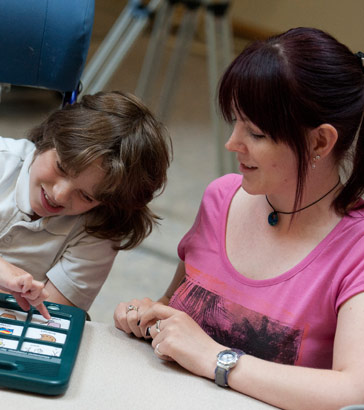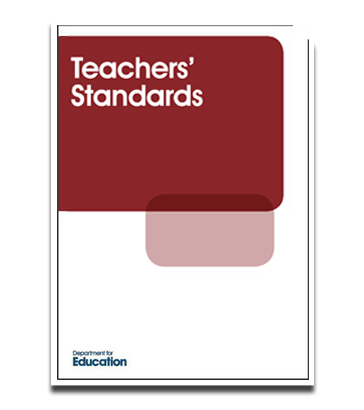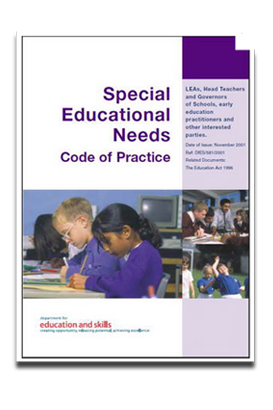

Level D of this module builds on what has been learned at levels B and C.
Level B introduces assessment, monitoring and evaluation approaches, whilst level C expands on this by looking to a range
of useful tools designed to assess a child's communication strengths and needs.
Level D focuses on how effective use of assessment data can ensure all teaching reinforces and extends pupils' knowledge
and understanding.
This level also looks at the role of school leaders in ensuring appropriate safeguarding including using a CAF.

The materials in this level are intended to provide the user with the tools to deliver the following learning outcomes.
- Use assessment information to create a profile of a pupil’s comprehension and expression and to monitor progress and facilitate achievement;
- Use assessments of communicative ability to determine appropriate use of high tech and/or low tech communication aids; and
- Understand and justify the critical role of leaders in improving teaching and learning.
Details of the professional standards which apply to all teachers in England can be obtained from the Department for Education website. These standards apply to all teachers regardless of their career stage and all aspects of the standards are relevant to teachers working with children with special educational needs.

As defined by the Department for Education Special Educational Needs Code of Practice (2001), 'Special Educational Needs' refers to children who have a learning difficulty. This means that they either:
- Have a significantly greater difficulty in learning than the majority of children of the same age; or
- Have a disability which prevents or hinders them from making use of educational facilities of a kind generally provided for children of the same age in schools within the area of the local education authority.

With thanks to the professionals who contributed to this module:
Module Content
Dr Rob Ashdown, Headteacher, St Luke’s Primary School, Scunthorpe
Dr Tina Rae, Academic and Professional tutor Doctorate in Educational and Child Psychology, University of East London
Eileen Visser, HMI Rtd , Inclusion and Diversity
All modules produced by The Schools Network and
Real Group (UK) Ltd for the Training Development Agency for Schools (TDA).
Editorial Team
Dr Mark Turner, Real Group (UK) Ltd
Professor Hilary Constable, The Schools Network
Jo Egerton, The Schools Network
Anne Fowlie, The Schools Network
John Truman, The Schools Network
Annie Grant, Independent Consultant
Production and Design
Jonathan Bond, Real Group (UK) Ltd
Colm Gibson, Real Group (UK) Ltd
David Hutter, Real Group (UK) Ltd
Ruth Earl, Real Group (UK) Ltd
Video, Audio and Photography
Atomic Productions
Project Management
Professor Barry Carpenter, The Schools Network
Alan Macgregor, Real Group (UK) Ltd
Sylvia Paddock, The Schools Network
Dr Mark Turner, Real Group (UK) Ltd
Caroline Ward, The Schools Network
Thanks to all the children, parents, carers, assistants and teachers for their involvement.